
Not long ago, railway passengers had to endure 11 or more hours of train travel— assuming it ran on time—to travel the 770-km distance between Delhi and Varanasi. The only quicker option was taking a flight. All that changed after Prime Minister Narendra Modi flagged off the first Vande Bharat Express at New Delhi in February 2019.
The gleaming white train was different. For starters, it didn’t need an engine to pull it. It featured 16 newly designed chair cars and had a top speed of 160 kmph. The Vande Bharat marked India’s first tryst with semi-high-speed ‘trainset’ technology, designed and built in India.
Its older cousins, the Rajdhanis and the Shatabdis, with their maximum speeds of 110 kmph, instantly paled in comparison. Thanks to the new technology of fully electric, self-propelled coaches, this train could accelerate and decelerate much faster than conventional loco-hauled trains. The impact was evident as it trimmed the travel time between Delhi and Varanasi by three hours, compared to the fastest trains on the route.
Beyond speed, the Vande Bharat’s interiors mirrored modern trains in developed countries—the engineers claimed they were inspired by highspeed trains in Europe. It had reclinable seats that rotated 180 degrees to face the direction of the journey and automatic, sensor-driven doors between coaches. There were biovacuum, modular toilets with ‘touch-free’ fittings, ‘airline-like’ lighting, screen-based passenger information system in every coach, charging points under every seat, wi-fi, even a specially curated menu. The look and feel were a marked departure from other railway offerings. So was the ticket price, often about double that of other trains.
Esta historia es de la edición October 23, 2023 de India Today.
Comience su prueba gratuita de Magzter GOLD de 7 días para acceder a miles de historias premium seleccionadas y a más de 9,000 revistas y periódicos.
Ya eres suscriptor ? Conectar
Esta historia es de la edición October 23, 2023 de India Today.
Comience su prueba gratuita de Magzter GOLD de 7 días para acceder a miles de historias premium seleccionadas y a más de 9,000 revistas y periódicos.
Ya eres suscriptor? Conectar
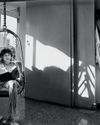
He gave the beat to the world
He would pick up the rhythms of each experience of mobility and weave them into his taals. Thus it was that he reflected joy and laughter in rhythmic cycles...such was the magic of Zakir's fingersText and photographs by Raghu Rai
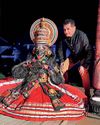
KERALA TOURISM CAMPAIGN, 1989 - TICKETS TO PARADISE
All it took was a catchy tagline-'God's Own Country'-for the world to discover Kerala's wealth of natural beauty. It remains among the best tourism ad campaigns, earning the state a place among top 10 international destinations

SPIRITUALITY - THE GURUS OF COOL
Among the cult Indian gurus, no one had a bigger hold on western minds than 'Osho' Rajneesh. He's also perhaps the role model for the enterprise-building gurus of today
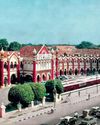
RETAIL SHOPPING - THE MALL MANIA
Shopping malls, a 1990s innovation in India, changed the way the Indian middle class shops. Their success now lies in being 'shoppertainment' destinations, offering something for everyone
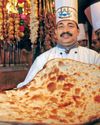
CULINARY RENAISSANCE, 1978 - TANDOORI NIGHTS
ITC's Bukhara and Dum Pukht turned the world to tandoori cuisine and had an enormous impact on the F&B industry. Decades on, they are still a pit-stop for celebrities and heads of state visiting Delhi
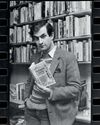
INDIAN WRITING IN ENGLISH - REVENGE OF THE NATIVE
Rushdie lit the way but Indian writing in English has taken a life of its own in the past few decades, with translated Indian fiction most recently having its moment in the sun
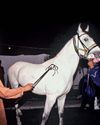
INDIAN ART - A BRUSH WITH GOLD DUST
The 1990s economic liberalisation came as oxygen, lighting up the Indian art scene. Today, artworks by established masters routinely go for astronomical amounts
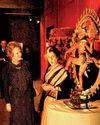
FESTIVAL OF INDIA, 1982 - CULTURE CAPITAL
The Festival of India grew into a symbol of our 'soft power', introducing our art and aesthetics to a global audience while also helping rebrand our domestic products

THE INDIPOP TREND - DISCO GOES DESI
For ages, the film song ruled. Nothing else was audible. Then came Nazia, charioteered by Biddu, and Indian ears went into a pleasant madness. Literally, Disco Deewane. A whole genre was born
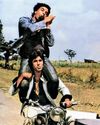
SHOLAY 1975 - THE BIRTH OF THE FANDEMIC
India had seen hits before. But Sholay seared into its collective psyche like a badland bullet. The effect was on a scale never seen before- one film creating a new mass folk culture. And a trail of monster blockbusters that still continues